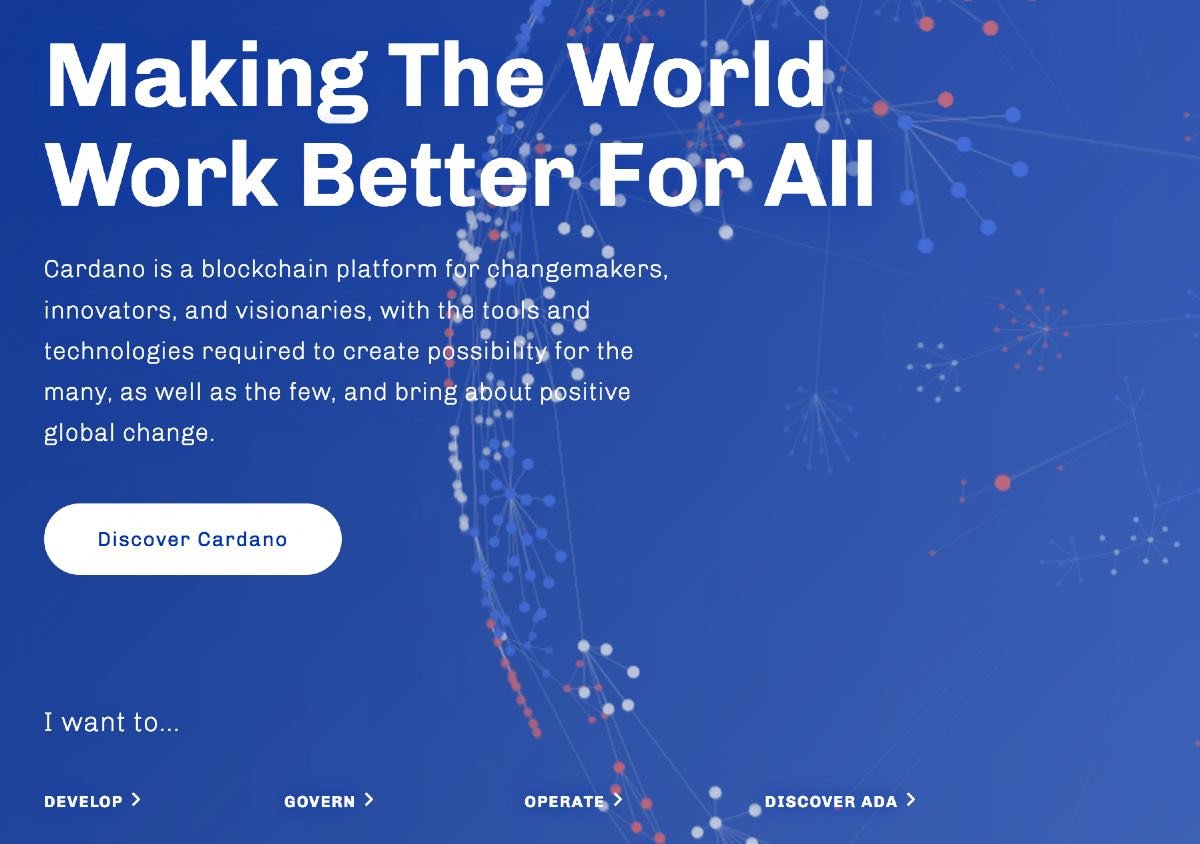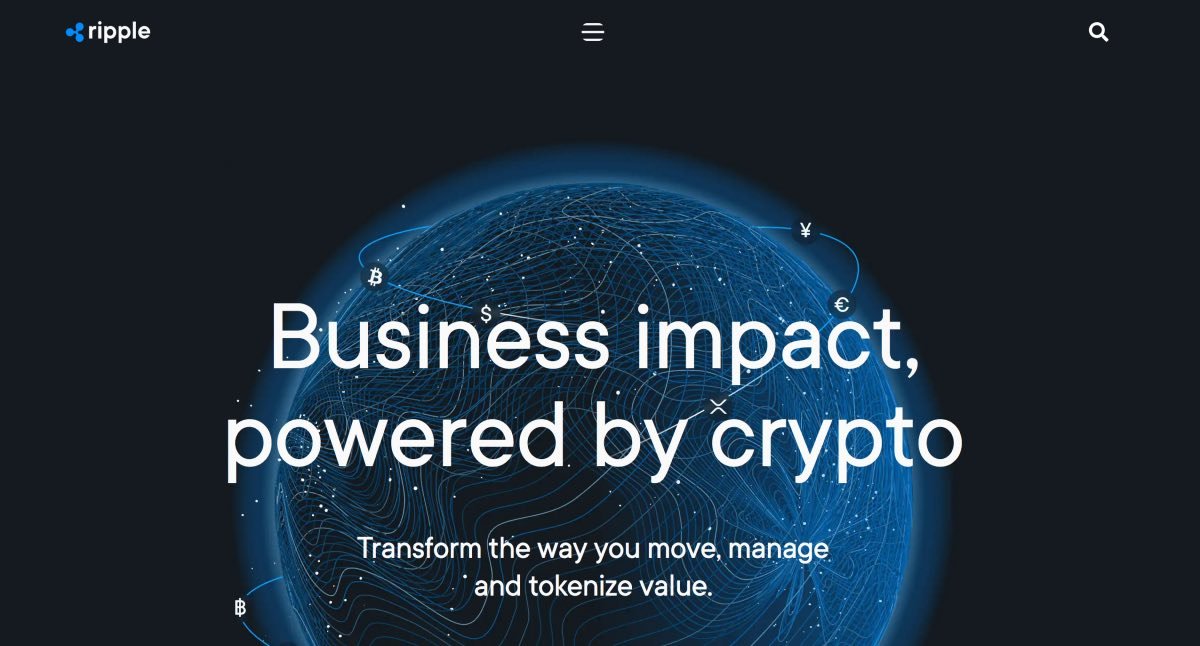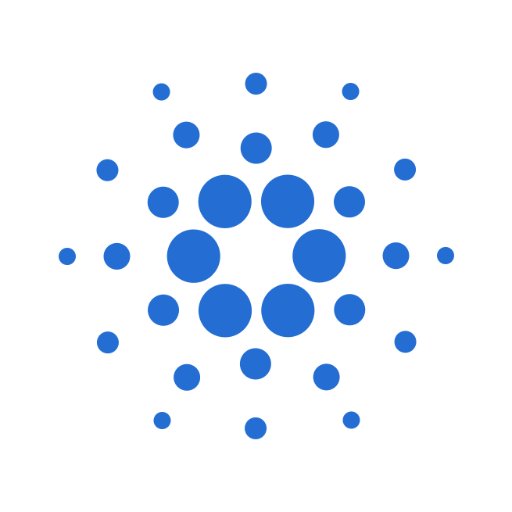Comparar Cardano (ADA) vs Ripple (XRP) Coin
This article will compare two coins with nearly the same market cap. They are among the top 10 cryptocurrencies while not being quite the same in terms of functionality. What makes them a bit similar is that both brands work with entities that initially were not associated with cryptocurrencies. Ripple works closely with banks, and Cardano works with all kinds of organizations and is already used by governments. Let's see the features of these coins and which is the better investment for you.
What Is Cardano?
Cardano is a blockchain-based ecosystem that can host and run decentralized apps (dApps) and smart contracts. In terms of functionality, it resembles Ethereum, but unlike the latter, Cardano was created with the potential for scalability and high operation speed in mind. Bitcoin and Ethereum are both relatively slow networks. It makes their adoption a more challenging task. Cardano is more suitable for everyday use.

The platform was launched in 2015. One of the key creators of Cardano is Charles Hoskinson, one of the Ethereum co-founders. Unlike Buterin, he was positive about making Ethereum a commercial project. That's why Hoskinson was omitted from the Ethereum team, and also, that's why Cardano was more inclusive in terms of sponsorships and partnerships.
The native token of the Cardano ecosystem is ADA. As of July 2022, the token's market cap exceeds $15 billion. Several governments use Cardano to handle data, while celebs and global brands use the apps built on Cardano. It's safe to say that Cardano is a successful project, and it continues its growth and development.
What Is Ripple?
Ripple is a payment protocol. It uses a cryptocurrency called XRP, which is often called Ripple, although that's not entirely correct. The platform was launched in 2012 in the US. Ripple was among the first significant cryptocurrency brands to cooperate with banks and financial institutions, which was unusual for the cryptocurrency industry at that period. Some criticized Ripple for relative centralization, while others praised the fast speed of the network and low fees.

In 2017 and 2018, Ripple was a scorching topic online. At some point, XRP's market cap was the second biggest after Bitcoin's. 2020 wasn't that bright for Ripple, and the coin went below its usual third position in the rating. Also, 2020 was the year when Ripple went under attack from the SEC and was delisted by Coinbase. As of July 2022, XRP holds the 7th position with a market cap exceeding $15 billion.
Cardano vs. Ripple (table)
| Factor | Cardano (ADA) | Ripple (XRP) |
| The price as of July 2022 | $0.45 | $0.31 |
| Market cap as of July 2022 | $15.2 billion | $15.3 billion |
| Rank as of July 2022 | #8 | #7 |
| All-time high | $3.09 (September 2, 2021) | $3.4 (January 7, 2018) |
| Decline (compared to all-time high) | 85.4% | 90.7% |
| All-time low | $0.019 (March 13, 2020) | $0.00268 (May 22, 2014) |
| Growth (compared to an all-time low) | 2,234.1% | 11,669% |
| Popular markets | Binance, Digifinex, Upbit, Coinbase, HitBTC | Binance, Upbit, Bitget, HitBTC, FMFW.io |
| Platform | Cardano | Ripple |
| Consensus mechanism | Proof-of-Stake | Ripple Protocol Consensus Algorithm (RPCA) |
| Products | IOHK, EMURGO | Ripple Academia, SBI Ripple Asia |
| Use cases | Smart contracts, dApps, data, financial operations | Financial operations |
Cardano vs. Ripple (details)
The price and the market cap
In terms of market cap, ADA and XRP are the closest rivals. As of July 2022, both cryptocurrencies have a market cap of around $15 billion and occupy the 7th and the 8th positions in the rating. The prices for both coins are in the same zone – between 30 and 50 cents per coin. In general, ADA tends to have a higher price than XRP. The latter never reached a 90 cents mark in the latest 180 days, while ADA crossed the $1 line several times in the same period of time.
One may suggest that XRP's best days are gone. The coin reached its all-time high back in 2018. ADA had its highest price in September of 2021. Both ATHs were about the same – between $3 and $3.5. In general, it seems that ADA performs better than XRP as of now. Not that we are claiming that XRP has no future, but Cardano's coin price trajectory appears to be more promising.
Popular markets
It is not hard to guess that as the market leaders, both coins are heavily presented on crypto exchanges. What is less obvious is that because of legal issues with Ripple, XRP was dropped by the largest US exchange Coinbase. In this sense, Cardano (ADA) has a more solid presence on the market. It's worth saying, though, that a single huge exchange delisting XRP is not a tragedy for the future of this coin. Even in the US, XRP is available on many top exchanges, including Kraken and many others.
Platform
Both ecosystems are based on their custom platforms. It makes them independent and robust compared to rivals building their platforms on top of third-party blockchains.
Consensus mechanism
Cardano and Ripple use eco-friendly consensus mechanisms. Cardano leans on a popular Proof-of-Stake. Ripple is based on its unique consensus mechanism, The Ripple Protocol consensus algorithm (RPCA). Both protocols are criticized for limited decentralization. Nevertheless, both of them still work the way they should. We can't say anything bad about PoS and RPCA, nor can we prefer one over the other.
Products
The additional products of both ecosystems are barely aimed at an end-user and are instead targeted at researchers and entrepreneurs. It is not bad, however, adding some products would have benefited both Ripple and Cardano.
Use cases
Speaking of use cases, we should note that Ripple is a less inclusive platform. It was created mainly for private banking purposes, and it doesn't have that much to offer on top of serving as a payment operator. Cardano is a multi-functional project that can be used to build other diverse products. It makes Cardano more versatile than Ripple. Potentially, Cardano's use cases can cover a bigger population.
| Empresa |
|---|
User rating
| 7 avaliações do usuário | 4 avaliações do usuário |
Cryptogeek rating
Pontuação de Confiança
Como funcionaSobre
|
A moeda Cardano (ADA) é uma criptomoeda lançada em 2017. A moeda é baseada na rede Cardano. O líder da equipe de desenvolvimento é Charles Hoskinson, um desenvolvedor experiente que trabalhou para Ethereum e BitShares antes do lançamento do Cardano. Cardano é a primeira criptomoeda a usar código de fonte aberta academicamente revisado por pares, o que torna esse projeto único. O algoritmo de consenso de Cardano é a Prova de Participação. Cardano é geralmente elogiado por seu alto nível de segurança e transações rápidas. A moeda Cardano rapidamente ganhou valor e se tornou uma das 10 principais criptomoedas por capitalização de mercado.
|
O Ripple é um protocolo de pagamento global destinado a fornecer transações rápidas e pagamentos baratos internacionalmente. A rede usa uma moeda digital conhecida como XRP (às vezes é conhecida como Ripple). Ao contrário de outras criptomoedas, o Ripple não tem como objetivo substituir os bancos, mas este projeto foi criado para melhorar o trabalho dos bancos (incluindo transações entre bancos diferentes) por meio de soluções blockchain.
|
Tipo
| coin | coin |
Data de fundação
| 2017 | 2012 |
País
| International | International |
Idiomas
| Sem dados | Sem dados |
Time
| Public | Public |
Protocolo
| Public blockchain | Public blockchain |
Preço atual (USD)
| 0.8325 | 2.8693 |
Recorde histórico (USD)
| 1.3300 | 3.8400 |
Mudança de Preço (24h)
| 1.33 | 1.68 |
Volume (24h)
| 21939535.39484 | 256817676.75790 |
Hashrate
| Sem dados | Sem dados |
Estoque Máximo
| 45000000000.00000 | 99999999999.99999 |
Oferta total
| Sem dados | Sem dados |
Estoque em Circulação
| 45000000000.00000 | 99985808022.00000 |
Velocidade de transação/ Tempo de Bloco
| 50 | 1500 |
Taxa de transação
| Sem dados | Sem dados |
Rentabilidade de mineiração
| Sem dados | Sem dados |
Algoritmo
| Ouroboros | Sem dados |
Tipo de prova
| PoS | Sem dados |
Totalmente pré-definido
| Sem dados | Sem dados |
Endereço de contrato inteligente
| Sem dados | Sem dados |
Total de moedas extraídas
| 25927070538.00000 | Sem dados |
Está negociando
| yes | Sem dados |
Recompensa de bloco
| 0.000000000000 | Sem dados |
Hora do bloco
| Sem dados | Sem dados |
| Empresa | ||
|---|---|---|
| User rating | 7 avaliações do usuário | 4 avaliações do usuário |
| Cryptogeek rating | ||
| Pontuação de Confiança Como funciona |
| Sobre |
A moeda Cardano (ADA) é uma criptomoeda lançada em 2017. A moeda é baseada na rede Cardano. O líder da equipe de desenvolvimento é Charles Hoskinson, um desenvolvedor experiente que trabalhou para Ethereum e BitShares antes do lançamento do Cardano. Cardano é a primeira criptomoeda a usar código de fonte aberta academicamente revisado por pares, o que torna esse projeto único. O algoritmo de consenso de Cardano é a Prova de Participação. Cardano é geralmente elogiado por seu alto nível de segurança e transações rápidas. A moeda Cardano rapidamente ganhou valor e se tornou uma das 10 principais criptomoedas por capitalização de mercado.
|
O Ripple é um protocolo de pagamento global destinado a fornecer transações rápidas e pagamentos baratos internacionalmente. A rede usa uma moeda digital conhecida como XRP (às vezes é conhecida como Ripple). Ao contrário de outras criptomoedas, o Ripple não tem como objetivo substituir os bancos, mas este projeto foi criado para melhorar o trabalho dos bancos (incluindo transações entre bancos diferentes) por meio de soluções blockchain.
|
|---|---|---|
| Tipo | Tipo coin | Tipo coin |
| Data de fundação | Data de fundação 2017 | Data de fundação 2012 |
| País | País International | País International |
| Idiomas | Idiomas Sem dados | Idiomas Sem dados |
| Time | Time Public | Time Public |
| Protocolo | Protocolo Public blockchain | Protocolo Public blockchain |
| Preço atual (USD) | Preço atual (USD) 0.8325 | Preço atual (USD) 2.8693 |
| Recorde histórico (USD) | Recorde histórico (USD) 1.3300 | Recorde histórico (USD) 3.8400 |
| Mudança de Preço (24h) | Mudança de Preço (24h) 1.33 | Mudança de Preço (24h) 1.68 |
| Volume (24h) | Volume (24h) 21939535.39484 | Volume (24h) 256817676.75790 |
| Hashrate | Hashrate Sem dados | Hashrate Sem dados |
| Estoque Máximo | Estoque Máximo 45000000000.00000 | Estoque Máximo 99999999999.99999 |
| Oferta total | Oferta total Sem dados | Oferta total Sem dados |
| Estoque em Circulação | Estoque em Circulação 45000000000.00000 | Estoque em Circulação 99985808022.00000 |
| Velocidade de transação/ Tempo de Bloco | Velocidade de transação/ Tempo de Bloco 50 | Velocidade de transação/ Tempo de Bloco 1500 |
| Taxa de transação | Taxa de transação Sem dados | Taxa de transação Sem dados |
| Rentabilidade de mineiração | Rentabilidade de mineiração high | Rentabilidade de mineiração low |
| Algoritmo | Algoritmo Ouroboros | Algoritmo Sem dados |
| Tipo de prova | Tipo de prova PoS | Tipo de prova Sem dados |
| Totalmente pré-definido | Totalmente pré-definido Sem dados | Totalmente pré-definido Sem dados |
| Endereço de contrato inteligente | Endereço de contrato inteligente Sem dados | Endereço de contrato inteligente Sem dados |
| Total de moedas extraídas | Total de moedas extraídas 25927070538.00000 | Total de moedas extraídas Sem dados |
| Está negociando | Está negociando yes | Está negociando Sem dados |
| Recompensa de bloco | Recompensa de bloco 0.000000000000 | Recompensa de bloco Sem dados |
| Hora do bloco | Hora do bloco Sem dados | Hora do bloco Sem dados |
Social
Site
| www.cardano.org | ripple.com |
| Cardano | @Ripple |
| Site | Site www.cardano.org | Site ripple.com |
|---|---|---|
| Twitter Cardano | Twitter @Ripple |
Vantagens
| Friendly Peer-reviewed technology Scalable | Affordable Solves problems and creates opportunities Moving into CBDCs |
Desvantagens
| Competitors in the same space Still in development Multiple chains | Not decentralized Uses a pre-mining protocol |
Avaliação
| User rating | User rating 7 avaliações do usuário | User rating 4 avaliações do usuário |
|---|---|---|
| Cryptogeek rating | Cryptogeek rating | Cryptogeek rating |
| Vantagens | Vantagens Friendly Peer-reviewed technology Scalable | Vantagens Affordable Solves problems and creates opportunities Moving into CBDCs |
| Desvantagens | Desvantagens Competitors in the same space Still in development Multiple chains | Desvantagens Not decentralized Uses a pre-mining protocol |
A avaliação de Cardano (ADA) usuários é de 4.3, com base em 7 avaliações de usuários. A avaliação de Ripple (XRP) usuários é de 5, com base em 4 avaliações de usuários.
We also calculate the special Cryptogeek TrustScore based on the characteristics of each coin.
| Escolhemos o vencedor com base em nossa classificação da Pontuação de Confiança. Lembre-se de que ainda depende de você qual empresa escolher! Como calculamos a Pontuação de Confiança? |
We can't say that buying ADA is better than buying XRP and vice versa. It depends on your goals. If you want a diversified portfolio, you can have both coins. If you choose crypto that performs better on the market in terms of price, you can see that ADA has had better stats lately. Of course, it doesn't necessarily mean it has a brighter future than XRP. Nevertheless, if you wish to have crypto with better ties with banks, then XRP can be a better pick than ADA.
This article will compare two coins with nearly the same market cap. They are among the top 10 cryptocurrencies while not being quite the same in terms of functionality. What makes them a bit similar is that both brands work with entities that initially were not associated with cryptocurrencies. Ripple works closely with banks, and Cardano works with all kinds of organizations and is already used by governments. Let's see the features of these coins and which is the better investment for you.
What Is Cardano?
Cardano is a blockchain-based ecosystem that can host and run decentralized apps (dApps) and smart contracts. In terms of functionality, it resembles Ethereum, but unlike the latter, Cardano was created with the potential for scalability and high operation speed in mind. Bitcoin and Ethereum are both relatively slow networks. It makes their adoption a more challenging task. Cardano is more suitable for everyday use.

The platform was launched in 2015. One of the key creators of Cardano is Charles Hoskinson, one of the Ethereum co-founders. Unlike Buterin, he was positive about making Ethereum a commercial project. That's why Hoskinson was omitted from the Ethereum team, and also, that's why Cardano was more inclusive in terms of sponsorships and partnerships.
The native token of the Cardano ecosystem is ADA. As of July 2022, the token's market cap exceeds $15 billion. Several governments use Cardano to handle data, while celebs and global brands use the apps built on Cardano. It's safe to say that Cardano is a successful project, and it continues its growth and development.
What Is Ripple?
Ripple is a payment protocol. It uses a cryptocurrency called XRP, which is often called Ripple, although that's not entirely correct. The platform was launched in 2012 in the US. Ripple was among the first significant cryptocurrency brands to cooperate with banks and financial institutions, which was unusual for the cryptocurrency industry at that period. Some criticized Ripple for relative centralization, while others praised the fast speed of the network and low fees.

In 2017 and 2018, Ripple was a scorching topic online. At some point, XRP's market cap was the second biggest after Bitcoin's. 2020 wasn't that bright for Ripple, and the coin went below its usual third position in the rating. Also, 2020 was the year when Ripple went under attack from the SEC and was delisted by Coinbase. As of July 2022, XRP holds the 7th position with a market cap exceeding $15 billion.
Cardano vs. Ripple (table)
| Factor | Cardano (ADA) | Ripple (XRP) |
| The price as of July 2022 | $0.45 | $0.31 |
| Market cap as of July 2022 | $15.2 billion | $15.3 billion |
| Rank as of July 2022 | #8 | #7 |
| All-time high | $3.09 (September 2, 2021) | $3.4 (January 7, 2018) |
| Decline (compared to all-time high) | 85.4% | 90.7% |
| All-time low | $0.019 (March 13, 2020) | $0.00268 (May 22, 2014) |
| Growth (compared to an all-time low) | 2,234.1% | 11,669% |
| Popular markets | Binance, Digifinex, Upbit, Coinbase, HitBTC | Binance, Upbit, Bitget, HitBTC, FMFW.io |
| Platform | Cardano | Ripple |
| Consensus mechanism | Proof-of-Stake | Ripple Protocol Consensus Algorithm (RPCA) |
| Products | IOHK, EMURGO | Ripple Academia, SBI Ripple Asia |
| Use cases | Smart contracts, dApps, data, financial operations | Financial operations |
Cardano vs. Ripple (details)
The price and the market cap
In terms of market cap, ADA and XRP are the closest rivals. As of July 2022, both cryptocurrencies have a market cap of around $15 billion and occupy the 7th and the 8th positions in the rating. The prices for both coins are in the same zone – between 30 and 50 cents per coin. In general, ADA tends to have a higher price than XRP. The latter never reached a 90 cents mark in the latest 180 days, while ADA crossed the $1 line several times in the same period of time.
One may suggest that XRP's best days are gone. The coin reached its all-time high back in 2018. ADA had its highest price in September of 2021. Both ATHs were about the same – between $3 and $3.5. In general, it seems that ADA performs better than XRP as of now. Not that we are claiming that XRP has no future, but Cardano's coin price trajectory appears to be more promising.
Popular markets
It is not hard to guess that as the market leaders, both coins are heavily presented on crypto exchanges. What is less obvious is that because of legal issues with Ripple, XRP was dropped by the largest US exchange Coinbase. In this sense, Cardano (ADA) has a more solid presence on the market. It's worth saying, though, that a single huge exchange delisting XRP is not a tragedy for the future of this coin. Even in the US, XRP is available on many top exchanges, including Kraken and many others.
Platform
Both ecosystems are based on their custom platforms. It makes them independent and robust compared to rivals building their platforms on top of third-party blockchains.
Consensus mechanism
Cardano and Ripple use eco-friendly consensus mechanisms. Cardano leans on a popular Proof-of-Stake. Ripple is based on its unique consensus mechanism, The Ripple Protocol consensus algorithm (RPCA). Both protocols are criticized for limited decentralization. Nevertheless, both of them still work the way they should. We can't say anything bad about PoS and RPCA, nor can we prefer one over the other.
Products
The additional products of both ecosystems are barely aimed at an end-user and are instead targeted at researchers and entrepreneurs. It is not bad, however, adding some products would have benefited both Ripple and Cardano.
Use cases
Speaking of use cases, we should note that Ripple is a less inclusive platform. It was created mainly for private banking purposes, and it doesn't have that much to offer on top of serving as a payment operator. Cardano is a multi-functional project that can be used to build other diverse products. It makes Cardano more versatile than Ripple. Potentially, Cardano's use cases can cover a bigger population.

